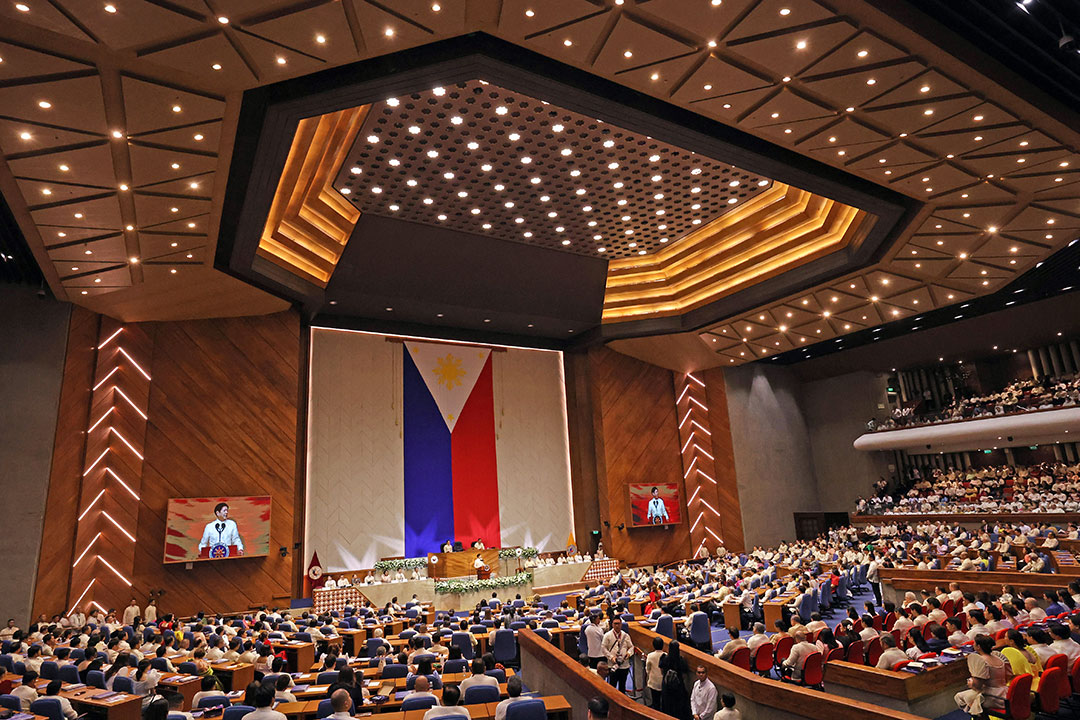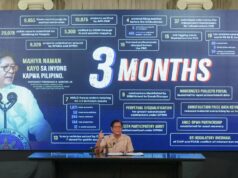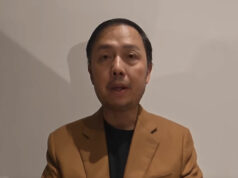Another Congress leadership shakeup could signal instability, analysts say

By Kenneth Christiane L. Basilio and Aubrey Rose A. Inosante, Reporters
A FRESH congressional leadership shakeup just over two months after the Senate President and House Speaker were replaced could deepen perceptions of political instability in the Philippines, political analysts said over the weekend.
It could also threaten President Ferdinand R. Marcos, Jr.’s legislative agenda in the second half of his term, as he seeks to woo foreign investors amid a multibillion-peso corruption scandal that risks affecting business confidence in the country, they added.
“A new upheaval will signal volatility, not just in politics but in governance,” Ederson DT. Tapia, a political science professor at the University of Makati, said in a Facebook Messenger chat. “It may heighten perceptions of factionalism at the very moment the country is confronting a scandal sending mixed signals to investors who look for predictability and coherence in policy direction.”
A broad leadership shakeup in the Senate and House of Representatives in September led to changes among politicians holding key posts who have since been linked to the flood control scandal.
Mr. Marcos had flagged about P545 billion in flood control spending since taking office in 2022, saying in August that thousands of projects were substandard, poorly documented or nonexistent. About P100 billion worth of projects were cornered by only 15 contractors, he said.
Senate President Vicente “Tito” C. Sotto III, who replaced Senator Francis G. Escudero, said in early November there had been talks to oust him. Rumors have also swirled that Speaker Faustino “Bojie” Dy III is also facing a coup plot, which northern Luzon lawmakers were quick to douse as it issued its “unequivocal support” for Mr. Dy’s leadership.
“If a shakeup leads to changes directed furthering reforms that can ease business transactions and alleviate government failures, then a shakeup might boost investor confidence,” Anthony Lawrence A. Borja, an associate political science professor at the De La Salle University, said in a Facebook chat.
“If not, then it would aggravate an image of political instability, that in turn, can spook foreign capital,” he added.
The key drivers of possible congressional leadership changes are the regional blocs and the possibility of an emerging coalition of disgruntled lawmakers, Mr. Tapia said.
“Add to this the informal influence networks around the Senate-House interface, and you have a combustible mix,” he said.
He added that any shift in congressional leadership could either accelerate or stall reforms, while helping shape the narrative for Mr. Marcos as he confronts the unfolding flood control scandal that has gripped his government.
“In a scandal-ridden environment, perception management becomes political survival.”
“The most recent shifts in the Executive branch, especially Ralph G. Recto’s appointment as executive secretary points to Mr. Marcos being serious about ensuring coordination between the executive and legislative branches, probably in relation to economic policies given Mr. Recto’s tenure in the Finance department,” Mr. Borja said.
He said that recent developments in the Marcos Cabinet could suggest that the President is serious about addressing the corruption scandal, “even at the expense of sacking Cabinet members.”
NEW CABINET MEMBERS
Mr. Marcos’ Cabinet also welcomed the appointment of Budget Secretary Rolando U. Toledo, who now faces a steep test as he takes office under a high-profile corruption probe, tasked to restore budget processes and speed up disbursements without fraud to lift economic growth, analysts said.
Michael Henry Ll. Yusingco, a fellow at the Ateneo de Manila University Policy Center, said Mr. Toledo may struggle to regain the public’s trust in the budget process.
Mr. Toledo replaced Amenah F. Pangandaman last week after she was linked to a P100 billion alleged insertion in the 2025 budget, according to former Party-list Rep. Elizaldy Co.
“He will constantly be suspected of sponsoring or turning a blind eye to pork barrel. For too long, lawmakers have clung to the antiquated ‘bring home the bacon’ mentality — celebrating pork as if it were a gift to constituents,” he said in a Facebook Messenger chat over the weekend.
Ms. Pangandaman, along with Executive Office Undersecretary Adrian Carlos A. Bersamin, may face “conspiracy to commit plunder” charges, according to Ombudsman Jesus Crispin C. Remulla, which adds further pressure on the budget agency.
“To truly break the cycle of plunder, the entire budget process needs recalibration. It needs to reflect the Bottom-Up Budgeting principle, where the planning begins with communities and regions rather than with national-level political brokerage,” he said.
Mr. Yusingco said that the budget process has often been regarded as synonymous with corrupt politicians seeking to plunder the public coffers.
Meanwhile, Foundation for Economic Freedom President Calixto V. Chikiamco said one key challenge for the newly installed official is to release government funds swiftly, but in ways that prevent waste and fraud.
He noted that a flood control corruption scandal has dampened economic growth as it clamped public spending, particularly in the Department of Public Works and Highways.
As of end-September, overall government infrastructure and capital outlays disbursements stood at P877.1 billion, down 10.7% from P982.4 billion a year ago. This accounted for 87.4% of the full‑year program.
The Department of Budget and Management earlier said the government is betting that its P1.31-trillion programmed spending for the fourth quarter will lift full-year economic growth this year.



